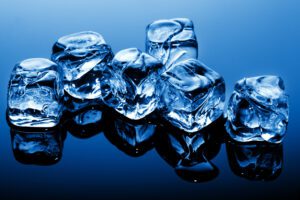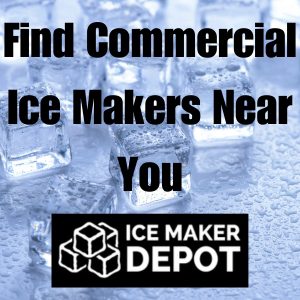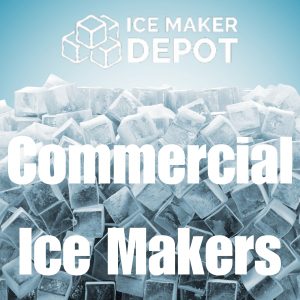
Industrial Ice Machines | A Buyers Guide
Understanding Industrial Ice Machines
Industrial ice machines are designed to meet the high-volume ice production needs of various businesses, including hospitality, healthcare, food service, and manufacturing industries. These machines are more robust, have higher production capacities, and are built to maintain efficiency and reliability over extended periods of heavy use.
Types of Industrial Ice Makers
Industrial ice machines can be categorized based on the type of ice they produce, their configuration, and their cooling methods. Common types of ice include cube ice, flake ice, nugget ice, and gourmet ice, each serving different purposes in commercial settings.
- Cube Ice Machines: Ideal for beverage service in restaurants, bars, and cafes, as the ice melts slowly and cools drinks effectively.
- Flake Ice Machines: Best for food displays, healthcare applications, and in some manufacturing processes due to their soft, moldable texture.
- Nugget Ice Machines: Favored in fast-food settings and healthcare for their chewable texture and quick cooling ability.
- Gourmet Ice Machines: Often used in upscale restaurants and bars for their clear, slow-melting, and aesthetically pleasing ice.
Machines also differ in their installation types—modular, undercounter, or countertop configurations—offering flexibility based on space constraints and production requirements.
Top Brands
Selecting the right ice maker for your business involves considering various brands, each with its unique features, price points, and specific advantages and disadvantages. Here’s a detailed overview of some top ice maker brands to help guide your decision.
Manitowoc Ice
Features: Manitowoc Ice is renowned for its innovative technology, offering a range of ice types including cube, nugget, and flake ice. Their machines are known for energy efficiency, ease of cleaning with removable parts, and user-friendly controls.
Average Cost: Prices can range from around $1,500 for smaller undercounter models to over $10,000 for large, high-capacity modular units.
Pros:
- Energy-efficient models can lead to lower operating costs.
- Easy to clean and maintain, which helps extend the machine’s lifespan.
- Variety of ice types and machine sizes to fit different business needs.
Cons:
- Higher upfront cost compared to some other brands.
- Some models may require professional installation, adding to the initial expense.
Hoshizaki
Features: Hoshizaki ice makers are celebrated for their durability and the quality of ice produced, particularly their crystal-clear cube ice and chewable nugget ice. Their machines often feature stainless steel construction and a unique “air-cooled” system to enhance efficiency.
Average Cost: Hoshizaki’s range starts from approximately $2,000 for compact models, with larger models reaching upwards of $10,000, depending on capacity and features.
Pros:
- Durable construction ensures long-term reliability.
- Produces high-quality ice with consistent size and clarity.
- Energy-efficient designs are available, particularly in their air-cooled models.
Cons:
- Premium pricing, reflecting their high-quality construction and durability.
- Some users find the machines require a steeper learning curve for operation and maintenance.

Scotsman
Features: Scotsman offers a wide variety of ice machines, including those that produce gourmet ice, nugget ice, and flake ice. They are known for their efficiency, and advanced water filtration systems.
Average Cost: Prices for Scotsman ice machines start around $2,000 for basic models, with high-end models costing up to $10,000 or more.
Pros:
- Advanced water filtration for cleaner, purer ice.
- Energy-saving features reduce operational costs.
- AutoAlert™ indicator lights for simpler maintenance.
Cons:
- The cost can be high for models with advanced features.
- Filter replacements and maintenance require additional investments over time.
Ice-O-Matic
Features: Ice-O-Matic focuses on simplicity and efficiency, offering a range of ice types including full cube, half cube, and flake ice. Their machines are designed for ease of use and maintenance, with features like antimicrobial protection and quick-access panels.
Average Cost: Entry-level models can be found for around $1,500, with larger, more advanced models priced up to $7,000.
Pros:
- Competitive pricing for businesses seeking value.
- Built-in antimicrobial protection helps ensure ice purity.
- Easy to clean and service, promoting longer machine life.
Cons:
- Limited range of ice types compared to other brands.
- Some models may have lower ice production rates, making them less suitable for high-demand settings.
Follett
Features: Follett offers chewable nugget ice machines and innovative ice and water dispensers. Their machines are designed for accessibility, hygiene, and noise reduction.
Average Cost: Follett’s machines typically start at around $3,000 for smaller dispensers, with larger ice machines and dispensers costing upwards of $10,000.
Pros:
- Focus on sanitary ice production and dispensing, ideal for sensitive environments.
- Quiet operation is suited for hospitals and quiet zones.
- Chewable nugget ice is a favorite for patient care and hydration.
Cons:
- Higher price point, especially for models with advanced features and larger capacities.
- May be over-specified for businesses that do not require the specific benefits offered.
Each of these brands offers distinct advantages, and the best choice will depend on your specific business needs, budget, and preferences. Considering the balance of features, cost, and the pros and cons of each brand can help you make an informed decision that will serve your business well into the future.
Features to Consider
When choosing an industrial ice machine, consider the following features:
- Production Capacity: Match the machine’s production capacity with your daily ice requirements. Consider peak times and potential business growth.
- Ice Type and Quality: Decide on the ice type based on your specific business needs. Quality refers to ice clarity, density, and size consistency.
- Energy Efficiency: Look for ENERGY STAR-rated machines to reduce operational costs and support environmental sustainability.
- Water Usage: Consider machines with water-saving technologies, especially in regions with water usage regulations or high water costs.
- Ease of Cleaning and Maintenance: Machines with easy-to-access parts and automated cleaning cycles will save time and ensure hygiene.
- Noise Level: For environments where noise is a concern, look for machines that operate quietly.
- Warranty and Service: A comprehensive warranty and accessible customer service can significantly impact long-term satisfaction and machine uptime.

What to Look for
- Reliability: Research customer reviews and industry feedback to gauge the reliability of different brands and models.
- Size and Footprint: Ensure the machine fits your available space without hindering operations, considering both the physical dimensions and the heat and ventilation requirements.
- Compliance: Verify that the machine meets local health and safety standards, as well as environmental regulations.
- After-Sales Support: Consider the availability of after-sales support and parts. A reliable network can mean quicker repairs and less downtime.
Choosing the right industrial ice machine involves balancing production needs, operational costs, and space constraints. By considering the types of ice machines, identifying top brands, understanding key features, and knowing what specifics to look for, businesses can make an informed decision that best suits their operational requirements and budget.

